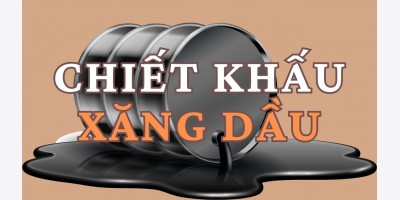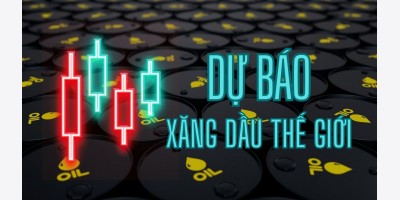Äá»™ng đất Nháºt Bản kéo giá dầu Ä‘i xuống
Cuối cùng thì giá dầu thô Ä‘ã chính thức rởi bá» mức 100 USD/thùng kể từ thứ Sáu tuần do bị phá vỡ bởi tráºn Ä‘á»™ng đất và sóng thần của Nháºt, khiến các nhà đầu tÆ° không khá»i lo ngại tráºn thiên tai này sẽ ảnh hưởng không nhỠđến phục hồi ná»n kinh tế toàn cầu.
Tráºn Ä‘á»™ng đất của Nháºt xảy ra vào hôm thứ Sáu tuần rồi Ä‘ã làm rung chuyển nÆ°á»›c Nháºt, kèm theo Ä‘ó là sóng thần Ä‘ã bao phủ màu tang tóc lên ná»n kinh tế đứng thứ ba trên thế giá»›i, qua Ä‘ó gây bấn loạn các mặt tráºn thị trÆ°á»ng tài chính toàn cầu từ chứng khoán, tiá»n tệ, hàng hóa ... NgÆ°á»i ta lo ngại rằng nhu cầu dầu ở quốc gia tiêu thụ đứng thứ ba trên thế giá»›i này cÅ©ng vì thế mà giảm theo.
Vào lúc 8h45 sáng nay (giá» Việt Nam), giá dầu Ä‘ang ở mức 99,88 USD/thùng, giảm 58 cent so vá»›i Ä‘óng cá»a phiên giao dịch cuối tuần. Giá dầu giảm trong phiên châu Á hôm nay cÅ©ng là ngày giảm thứ năm liên tiếp xuống mức thấp nhất trong hai tuần, mất 4,9% kể từ ngày 07/03.
Mặc dù sá»± căng thẳng giữa phe nổi dáºy trong nÆ°á»›c vá»›i quân Ä‘á»™i của tổng thống Libya ngày càng leo thang, nhÆ°ng giá»›i đầu tÆ° cÅ©ng chẳng còn hÆ¡i sức Ä‘âu mà quan tâm đến lượng dầu bị hao hụt, bởi cái chính là Nháºt sẽ cắt giảm nháºp khẩu dầu là bao nhiêu trong tháng này, cÅ©ng nhÆ° há» sẽ cần thêm thá»i gian là bao lâu nữa để khắc phục háºu quả ghê gá»›m gây ra bởi thiên tai.
Oil Falls to Two-Week Low as Japanese Quake May Limit Demand
Share Business ExchangeTwitterFacebook| Email | Print | A A A
March 14 (Bloomberg) -- Oil fell in New York to the lowest in two weeks amid concern an earthquake in Japan will limit demand in the world’s third-largest economy and crude user.
Prices have dropped 4.9 percent since March 7, retreating for five days in the biggest decline since the period ended Feb. 7. Japan was struck by its largest temblor ever recorded on March 11. JX-Nippon Oil & Energy Corp. has shut three crude processing plants as of today. Canon Inc., Sony Corp. and Nippon Steel Corp. have halted operations at manufacturing facilities.
“With the closure of the factories and refineries in Japan we can expect the oil price to take a hit,” said Ben Le Brun, an analyst at CMC Markets based in Sydney. “It’s not good for their near-term growth prospects.”
Oil for April delivery fell as much as $1.98, or 2 percent, to $99.18 a barrel on the New York Mercantile Exchange, the lowest intraday price since March 1. It was at $100.17 at 8:51 a.m. Singapore time. The contract tumbled $1.54 to $101.16 a barrel on March 11, the lowest settlement since March 1. Prices are up 25 percent from a year ago.
Brent oil for April settlement on the London-based ICE Futures Europe exchange dropped as much as $1.31, or 1.2 percent, to $112.53 a barrel. The contract fell $1.59, or 1.4 percent, to $113.84 on March 11.
Oil in New York last week fell 3.1 percent, the first weekly drop in a month, following the disaster in Japan. Futures have surged 9.2 percent since Jan. 14, when the president of Tunisia was ousted in the first of the unrest that has rocked the Middle East and North Africa, including Saudi Arabia’s neighbors Yemen, Oman and Bahrain. Prices touched a 29-month high of $106.95 a barrel in intraday trading March 7.
‘Day of Rage’
Futures prices also eased last week after a planned series of protests in Saudi Arabia, the so-called “Day of Rage,” was prevented by police deployments in the capital of Riyadh and other cities.
“That planned Day of Rage was a non-event as far as I’ve heard and that seemed to help ease the oil price,” said CMC’s Le Brun. “Still, there are ongoing tensions in Yemen, Bahrain and Iran and that will put a floor under the oil price.”
Japan was struck by an 8.9-magnitude temblor that unleashed a 7-meter (23-foot) tsunami that may have killed 10,000 people in the north of the country.
JX Nippon closed refineries in Sendai, Kashima and Negishi. The plants have combined processing capacity of about 600,000 barrels a day, or 13 percent of the country’s total of 4.516 million, based on data from the Petroleum Association of Japan.
Japan consumed 4.42 million barrels a day of oil in 2010, according to data from the International Energy Agency’s Feb. 10 Monthly Oil Market Report. China used 9.39 million barrels and the U.S. consumed 19.25 million, the agency said.
Hedge Fund Bets
Hedge funds’ bullish oil bets rose to an all-time high for a third straight week as concerns about supplies increased amid fighting in Libya and the threats of protests in Saudi Arabia.
Large speculators and funds increased net-long positions, or wagers on higher prices, by 2 percent in the seven days ended March 8 to 311,632 futures and options, the most in records dating back to June 2006, according to the Commodity Futures Trading Commission’s weekly Commitments of Traders report. The total has jumped 68 percent since Feb. 15.
The CFTC data only reflect positions taken through March 8, so wouldn’t include any changes since the Japan earthquake.
To contact the reporter on this story: Christian Schmollinger in Singapore at christian.s@bloomberg.net
To contact the editor responsible for this story: Clyde Russell at crussell7@bloomberg.net
Last Updated: March 13, 2011 21:17 EDT








